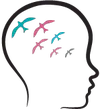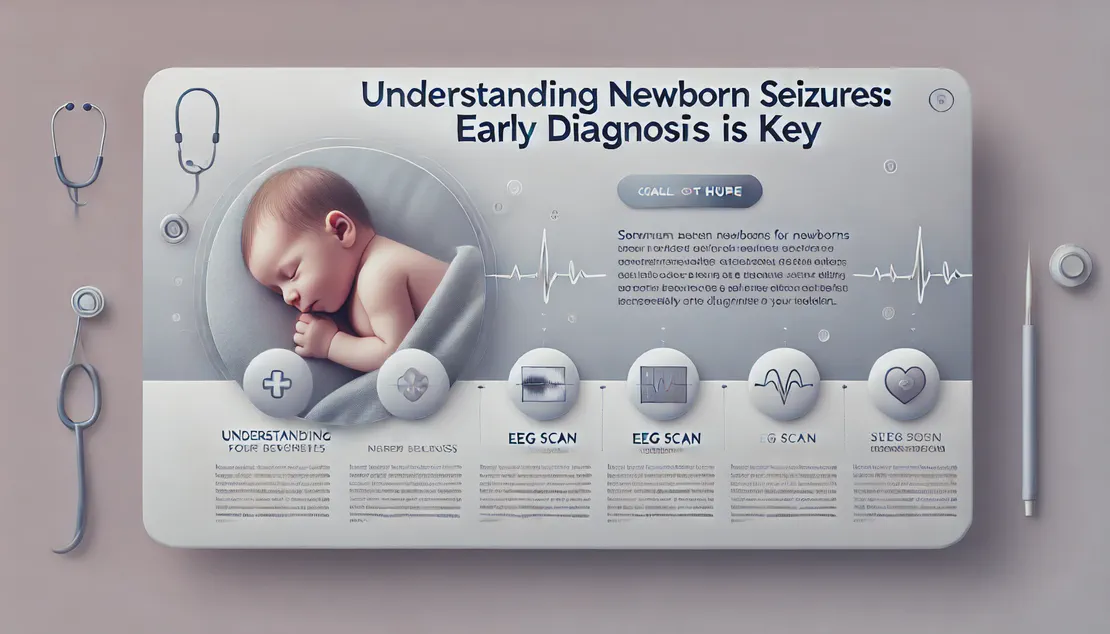Understanding Newborn Seizures: What Every Parent Should Know
Seizures in newborns are a critical health concern that often requires immediate medical attention. Unlike seizures in adults or older children, seizures in newborns can be more subtle and harder to identify, but their impact can be profound. This guide will help you understand the basics of newborn seizures, their causes, types, and what to do if you suspect your baby is experiencing one.
What Are Newborn Seizures?
Newborn seizures refer to episodes of abnormal electrical brain activity that typically occur within the first 30 days of life. These seizures may present differently than those in older children or adults, making them more difficult to diagnose. Early detection is crucial because untreated seizures may lead to developmental issues or brain damage.
Prevalence of Newborn Seizures
Newborn seizures occur in about 1 in 1,000 live births. Premature babies, especially those born before 37 weeks of gestation, are at higher risk because their brains are still developing, making them more susceptible to disruptions in brain function.
Common Causes of Newborn Seizures
Newborn seizures can arise due to various medical conditions. The most common causes include:
- Metabolic Disorders: Imbalances in glucose, calcium, or other vital chemicals can trigger seizures.
- Structural Brain Abnormalities: Issues like brain malformations or hemorrhages are common causes.
- Infections: Meningitis or other infections can inflame the brain and lead to seizures.
- Drug Withdrawal: Babies born to mothers who used certain drugs during pregnancy may experience seizures during withdrawal.
- Brain Injuries: Oxygen deprivation or trauma during birth can lead to neonatal seizures.
Types of Newborn Seizures
Seizures in newborns are often classified into four main types:
- Clonic Seizures: These involve rhythmic jerking of muscles, often in one area of the body.
- Tonic Seizures: These are characterized by muscle stiffness, usually affecting the whole body or a specific limb.
- Myoclonic Seizures: These are brief, sudden muscle jerks that can be isolated or affect multiple parts of the body.
- Subtle Seizures: These are the hardest to detect. They may only be identified with an electroencephalogram (EEG) and can involve unusual eye movements or slight facial twitching.
Diagnosis of Newborn Seizures
Because newborn seizures can mimic other conditions like startle reflexes or tremors, diagnosis often involves several tests, including:
- EEG (Electroencephalogram): This test measures the electrical activity in the brain and is essential for identifying subtle seizures.
- MRI or CT Scans: These imaging tools help visualize structural abnormalities in the brain.
- Metabolic Tests: These assess for imbalances in blood chemistry, such as low glucose or calcium levels.
- Genetic Testing: Some seizures may have genetic causes that can be identified through DNA testing.
Treatment for Newborn Seizures
The treatment of newborn seizures depends on the underlying cause. In many cases, anti-seizure medications are prescribed to control the seizures. Other treatment options may include:
- Anti-seizure Medications: These are often the first line of treatment.
- Ketogenic Diet: For some types of seizures, particularly when medications are not effective, a special high-fat, low-carbohydrate diet can help reduce seizure frequency.
- Surgery: In rare cases, surgery may be required to correct a brain abnormality causing the seizures.
Signs to Watch For
It’s essential to monitor your baby for any unusual movements or behaviors that could indicate a seizure. Common signs include:
- Jerking movements of the arms or legs
- Stiffness in the limbs or body
- Sudden, brief muscle jerks
- Repetitive facial movements, such as lip-smacking or eye blinking
- Unusual eye movements or staring spells
Because these signs can resemble normal baby behaviors, such as tremors or startle reflexes, it’s important to seek medical attention if you’re concerned. Early diagnosis and intervention can prevent potential long-term damage and improve outcomes.
When to Seek Medical Attention
If you notice any of the signs mentioned above or have concerns about your baby’s behavior, contact your pediatrician immediately. In some cases, seizures can be a sign of a more serious condition that requires prompt treatment.
The Importance of Early Intervention
Timely diagnosis and treatment of newborn seizures are essential for preventing brain damage and other complications. With proper medical care, many babies with seizures can go on to lead healthy, normal lives.
At [Your Clinic/Organization Name], we are committed to providing expert care for newborns experiencing seizures. If you suspect your baby is having seizures or would like to learn more, don’t hesitate to consult with our team.
Key Takeaways:
- Newborn seizures affect approximately 1 in 1,000 babies, with premature infants at higher risk.
- Common causes include metabolic disorders, brain abnormalities, infections, and birth injuries.
- There are different types of seizures, and diagnosis often requires specialized tests like EEGs or MRIs.
- Early intervention and treatment can significantly improve outcomes for affected newborns.
For more information or to schedule an appointment, please contact us.


